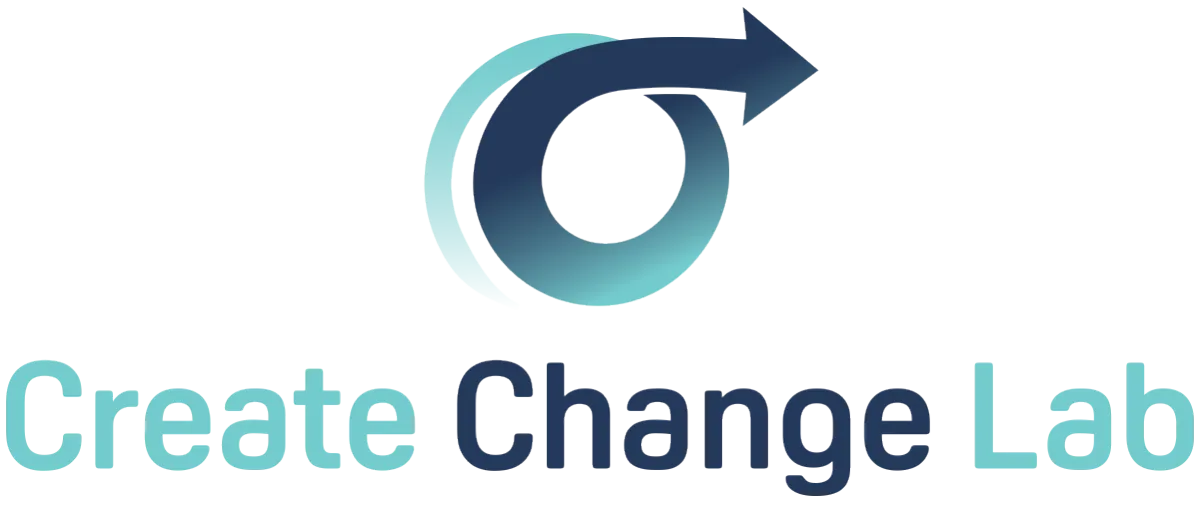About
About
When I was first diagnosed with Parkinson's Disease in the late summer of 2024, I knew that it was coming. Not only had I been experiencing symptoms for about 5 years -- lack of arm swing when walking, slowness, stumbling, lost of strength in my right arm and leg...-- but because it runs in my family: both my mother and father were diagnosed with PD in their later years, and my sister in her late 50's. I haven't tested for the marker gene, because whatever the marker is, it just represents a tendency that can be triggered or subdued by environmental and lifestyle factors. That's epigenetics, and the reason to be proactive: What I do matters.
Epigenetics is the study of how the environment and other factors can change the way that genes are expressed, beyond how the DNA is written. About 15% of Parkinson's patients have a family history of the disease, while only 5-10% are thought to have one of the genetic mutations that can predispose one to the disease (LRRK2, PARK2, PARK7, PINK1 or the SNCA gene).
The Before Times
Professionally, I work in the field of Public Health Communications (aka Behavior Change Communications or Social Marketing), and teach in the Master of Public Health program in the Larner College of Medicine at the University of Vermont. I have a doctorate in Educational Leadership and Policy Studies and a Master's degree in Media Ecology. When I trained to be a Health Coach in 2015, the background in the theories of behavior change and research-based best practices, as well as curriculum development, set me up for taking action on the epiphany I was about to have.
In 2016, I was researching a book that brought together these two interests: media and health. The focus was how the media--and advertising in particular--has created a food culture where convenience is the predominant value. In particular, I was deep into studying the tactics of Big Sugar, and how the repetition of images of kids eating sugary cereals on television has made parents and kids think that cereal is an easy and healthful breakfast -- when nothing could be farther from the truth -- when I had an epiphany in a grocery store.
I was finished with my grocery shopping and looking for a snack to eat in the car on the drive home (that's why they put the candy by the checkout!). As I was reaching for the dark chocolate peanut butter cups, I heard myself say, "You can have that, you worked out today." Now, that's something I've said to myself a hundred or a thousand times before, but since I was studying the sugar industry I was able to identify that it wasn't my rational brain talking. That's when it hit me: That's the Sugar Talking! I stood there in the middle of the market for several minutes, dumbfounded. Have I been addicted to sugar this whole time and not realized it? Are all the rationalizations and justifications for having treats consistent with other forms of addiction? How is it possible that sugar is talking to me? It was right then that I decided to change the focus of my research from advertising and policy to biology. And I was going to unravel my sugar addiction, and teach others how to do it too.
It took me two years to heal my dependency on sugar, and I created my first course Breaking Free from Sugar in 2019. To date, over 4,000 people have taken that course, with over 95% of them reporting they were successful reducing their sugar consumption and planning to continue with a sugar-minimal lifestyle. Then I wrote a book about it called The Sweet Tooth Dilemma, which became a bestseller on Amazon.
Because of that experience of healing took two years until I felt like I was on solid ground -- changing 35 years of habits, beliefs and biology doesn't happen over night -- I figure that might also be the case with PD. if I dedicate myself to learning, and experimenting with changing all the lifestyle and environmental factors within my control, that I can reverse the symptoms of Parkinsonism. And I'm giving myself two years to try (though really I won't stop trying :).
Where I am now
When I was officially diagnosed with PD in the late summer of 2024, I went through an emotionally tumultuous period, alternating self-pity and defiance. I joined the Facebook Group on Alternative Healing for Parkinson's, started following organizations and websites (see Resources tab), and generally started experimenting. I had heard that vigorous exercise was one of the only documented ways to slow the progression of the disease, so I started raising my workout game: got a Peloton bike (to use in addition to the weight training classes) and started Rock Steady, a boxing program for people with PD.
Then, in the late fall, I developed a habit of easily-triggered crying. The smallest mention or thought of having PD would send me into uncontrollable waves of tears. It felt like they were coming from my chest. Just flooded with emotions, a mix of grief, feeling sorry for myself, opportunity lost, feeling like something had been taken away from me, and even a bit of resentment -- why me, I'm so healthy?!
The months of crying came to a peak on New Year's Eve. We went out to a Talking Heads tribute band, with the youthful excitement of dancing in the New Year. Except the minute I stepped on to that dance floor, the sobbing started and barely let up for several hours. You see, I was a dancer -- not a professional dancer but a freestyle dancer, who loved to go out dancing and lose myself in the music. I used to pride myself on being able to dance to any type of music. It was a cherished form of tension release, creative expression, and often a workout too. It was the one place I could get out of my head and into my body. But on New Year's' Eve, my body was having none of it. I could barely sway to the beat let alone dance to those well-loved songs in rhythm..
I suppose that was my emotional rock-bottom, because I woke up the next morning with resolve:
- I'm not going to feel sorry for myself anymore
- I'm going to learn and do everything I can to feel the best I can
- I'm going to figure stuff out and share it with the PD community
I am sharing my journey publicly in case I actually am successful in reversing the disease there will be a record, and also to let others with PD share in my up days and down days. We need to stay resilient.
My approach is systems-based, and starts with the assumption that the rise of PD (and other neurological disorders including Alzheimer's) is not natural to ageing: it is our food, our environment, and our lifestyles are creating disease in the body. It is a functional medicine/nutrition approach that looks to address the root causes rather than merely address symptoms.
I don't have anything against addressing symptoms directly too -- I am currently taking a small dose of carbidopa/levidopa.
It is my current mission: to explore, test, and share what works.
Thanks for reading.
See Recent Posts from my Health Coaching Blogs
[PD Blog starting soon!]

Chew On This: Your secret keystone habitto better health
Could chewing be your keystone habit?
Let me explain.
In my weekly group coaching program, the Sweet Freedom Society (designed for graduates of the Quit Sugar Bootcamp who want ongoing accountability and support), we recently dove into the underestimated practice of thoroughly chewing our food. It turns out that something as simple as chewing can profoundly impact our health and well-being, providing benefits across three key areas:
1. Brain Health and Stress Reduction
Did you know chewing boosts blood flow to your brain, particularly enhancing activity in the hippocampus—the region essential for memory? Research confirms that biting and chewing activate neural pathways, promoting cognitive clarity. Moreover, chewing has been extensively studied as a stress-reliever. Although watching someone chew gum isn't the most pleasant sight (best done privately!), this repetitive motion genuinely calms your nervous system.
2. Better Digestion and Nutrient Absorption
Chewing isn't just about breaking down food mechanically; it's a critical first step in effective digestion. Extended chewing prompts your mouth to release vital digestive enzymes, particularly for carbohydrate breakdown. When food is well-chewed into a soft mush, enzymes have greater access to nutrients, maximizing their absorption. Conversely, larger food chunks passing through your gut mean lost nutrients and missed benefits. Additionally, thorough chewing naturally slows your eating pace, allowing your body time to signal fullness, thus preventing overeating.
3. Increased Mindfulness and Gratitude
Beyond physiological benefits, thorough chewing fosters mindfulness, elevating your eating experience. When you deliberately notice and savor the flavors, textures, and sensations of food, eating transforms from a routine task into an enjoyable, sensory-rich experience. This mindful approach can amplify feelings of gratitude—a powerful emotion that significantly boosts overall well-being.
But what's a "keystone habit"?
Our brains are remarkable habit-forming machines, always seeking efficiency. Habits let your brain run certain activities on autopilot, saving precious energy. However, not all habits hold equal weight.
A keystone habit is special—it naturally triggers a cascade of other beneficial behaviors. For example, regular exercise often serves as a keystone habit, prompting better sleep, healthier eating, and improved hydration. One habit effortlessly influences many others, creating a positive chain reaction.
Thorough chewing has a similar potential. By intentionally slowing down, it encourages mindful eating, better digestion, reduced stress, and deeper enjoyment of meals. If your meals require only minimal chewing, chances are you're missing out on essential fiber and nutrients. On the other hand, making chewing your keystone habit can dramatically elevate your overall health and mindfulness.
Try this: depending on what you're eating, chew 20, 30 or 40 times, turning the food into a uniform mush or liquid. Heighten your awareness of the sensation of mechanical chewing, as well as the tastes and textures of the food. As your mind wanders, bring it back to the sensations of chewing. When you eat in this way, it can not only be a delight-filled meditation, but also a way to build discernment about your food choices.
Could this simple act be the foundation of your next health breakthrough?
For information about the next Quit Sugar Bootcamp, please visit QuitSugarBootcamp.com

© 2025 Create Change Lab, LLC and Andrea Grayson. All Rights Reserved,
